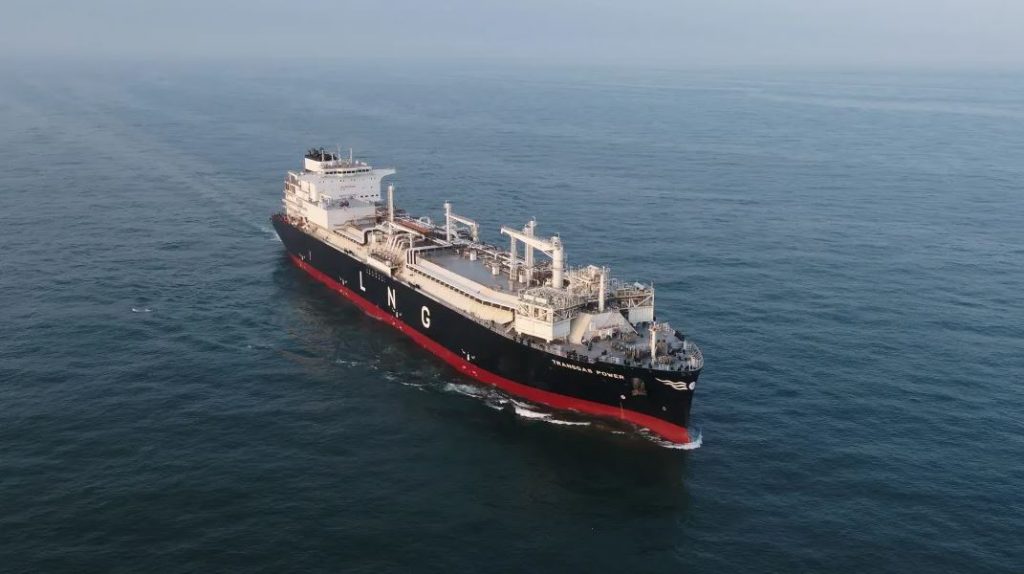LNG terminal operator Deutsche ReGas confirmed that it plans to install the 174,000-cbm FSRU Transgas Power, owned by Dynagas, to serve the LNG import terminal in the port of Mukran.
The German firm led by Ingo Wagner and Stephan Knabe said in a statement on Wednesday it has signed a deal with the German government to sub-charter the vessel delivered in 2021 by Hudong-Zhonghua.
According to the agreement, Deutsche ReGas will assume the rights and and obligations of the charter agreement between Germany and Dynagas, including all costs for the full charter.
Also, the FSRU will work along the 2009-built 145,000-cbm, FSRU Neptune, which Deutsche Regas chartered from French energy giant TotalEnergies, in Mukran as part of the second phase of the “Deutsche Ostsee” LNG terminal.
Deutsche Regas will move FSRU Neptune from Lubmin to the Mukran port on the island of Rügen later this year.
The firm recently said it will start the binding open season procedure for the second phase on June 29 and plans to launch the facility this winter.
The FSRU-based terminal will connect to the gas transmission network via a new connecting pipeline to be built between Mukran and Lubmin.
Germany’s Gascade, which built the Lubmin LNG pipeline, is in charge for this pipeline as well.
The second phase of the terminal will have a capacity of up to 13.5 bcm per year, it said.
German FSRUs
Several sources previously told LNG Prime that Deutsche ReGas will install FSRU Transgas Power in the Mukran port.
Energy firm RWE also confirmed that it will not take part in the German government’s plans to develop the terminal in Mukran.
This terminal has faced strong opposition from environmental groups in Germany.
The German government, helped by Uniper, RWE, and a consortium of Engie, TES, and E.ON chartered in total five FSRUs to import LNG and replace pipeline gas supplies from Russia.
Uniper and RWE already installed Hoegh LNG’s FSRUs in Wilhelmshaven and Brunsbüttel.
Transgas Force, owned by Dynagas, will work in Stade, while Excelerate Energy’s FSRU Excelsior will serve the second project in Wilhelmshaven.
Deutsche ReGas officially launched its Lubmin FSRU-based LNG import terminal with a capacity of 5.2 bcm per year, the first private LNG terminal in Germany besides the government-backed facilities, in January this year.

